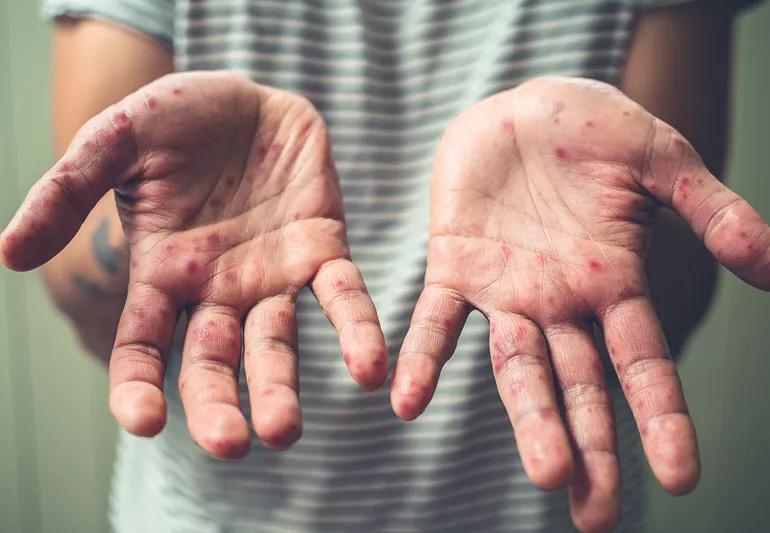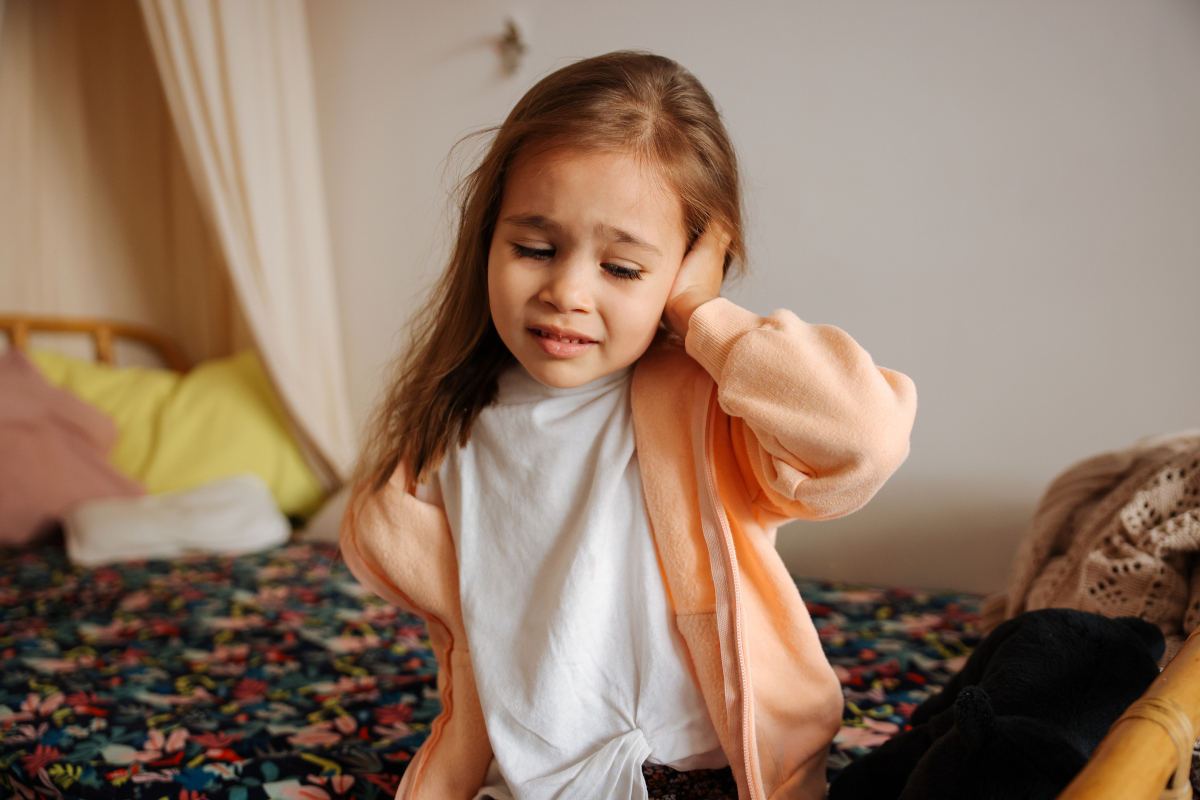Can Adults Get Hand, Foot and Mouth Disease?

When we typically think of catching an illness from kids, it tends to revolve around the usual yucks: colds, the flu and maybe a stomach bug. But other more serious illnesses that are frequent in kids can affect adults, too.
Advertisement
Cleveland Clinic is a non-profit academic medical center. Advertising on our site helps support our mission. We do not endorse non-Cleveland Clinic products or services. Policy
One of those is hand, foot and mouth disease, a viral infection that’s very contagious and mostly affects infants and younger children, as it can spread very quickly in environments like a nursery or daycare. But adults are susceptible to the disease and its painful symptoms, as well. Family medicine specialist Neha Vyas, MD, explains what you can expect from an adult case of the disease.
How can adults get hand, foot and mouth disease?
Hand, foot and mouth disease is a viral infection, which means adults, like children, catch the virus from others. In hand, foot and mouth disease, coxsackievirus 16 is usually the responsible virus. Less often, other enteroviruses are to blame.
“Hand, foot and mouth disease spreads quickly, especially in the spring, summer and early fall,” says Dr. Vyas. It catches on like wildfire in crowded living conditions (think college dorms). “So it’s possible to get it all year long — even in the winter months,” she adds.
Why does hand, foot and mouth disease literally “go viral” so quickly? Because it’s passed on in three different ways:
- From mouth to mouth — not just by kissing, but also by being close.
- From inhaling respiratory droplets.
- From touching fecal matter, which then finds its way into your mouth.
“The other reason it’s so easily transmitted is that you can pass it on to others before you have symptoms because you don’t realize you’re ill,” says Dr. Vyas.
What are the symptoms of hand, foot and mouth disease?
There are generally two stages of symptoms for both adults and children. During the first, stage, you’ll typically experience flu-like symptoms, including:
- Mild fever.
- Sore throat.
- Runny nose.
- Little appetite.
These early symptoms fade after a few days, followed by the next wave of symptoms from which the disease gets its name. These include:
- Itchy rash on the palms of your hand, soles of your feet, knees, elbows, genitals or butt cheeks.
- Painful, blister-like mouth sores.
- Swollen lymph nodes in your neck.
“Fever and feeling ill are the worst of it until you see blisters in your mouth and on your hands, that’s what gives it away,” says Dr. Vyas. These tiny, fluid-filled blisters can develop in your throat, on your tongue or your inner cheek, as well as on your hands and feet.
“While kids usually have vesicles, adults don’t always get them — so their hand, foot and mouth disease often goes unrecognized,” she notes.
How long does hand, foot and mouth disease last in adults?
Overall, the disease usually resolves in a few weeks but some symptoms may linger longer. Symptoms like fever and sore throat last for a week or so. Hand lesions can last for two weeks, throat lesions can last for a few weeks and foot lesions can last for several weeks, notes Dr. Vyas.
“The blisters can be painful, so when you have them in your mouth, as kids do, it can hurt to swallow,” she adds.
Doctors generally don’t treat hand, foot and mouth disease. Instead, they recommend supportive care, like using acetaminophen (Tylenol®) and ibuprofen (Advil®) for fever and pain.
Can adults go to work with hand, foot and mouth disease?
No. Because the disease is contagious, you should stay home to prevent the spread to others, especially within the first few days. When you’re diagnosed with hand, foot and mouth disease, it’s important to take universal precautions:
- Wash your hands before you eat.
- Disinfect all surfaces you touch, especially doorknobs, faucets and toilet handles.
- Stay home from work, school and social events.
And because you can have hand, foot and mouth disease without knowing it, “avoid people who are elderly or immunocompromised at the first sign of a fever,” stresses Dr. Vyas. “And it’s also important to stay away from pregnant people, especially in the last few weeks of pregnancy.”
Is hand, foot and mouth disease serious in adults?
“The long and short of it is that hand, foot and mouth disease can be problematic,” says Dr. Vyas. “Meningitis is a big worry because, like all viruses, it can cross the blood-brain barrier. It can also infect the heart and cause myocarditis.”
She hastens to add that those who are susceptible to complications are usually sick to begin with — for example, they may be elderly or frail, or have cancer or other diseases that weaken their immune system.
But hand, foot and mouth disease is also risky for healthy people who are pregnant because it increases the risk of stillbirth. Also, late in pregnancy, a baby can become infected in the uterus even if the mother isn’t.
Those situations aside, Dr. Vyas stresses that the likelihood of complications from hand, foot and mouth disease in healthy adults remains low.
link

:max_bytes(150000):strip_icc()/asian-sick-little-girl-lying-in-bed-with-a-high-fever-952683074-5b5b784046e0fb005027ca13.jpg)



